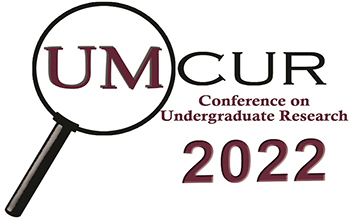Project Type
Presentation
Faculty Mentor’s Full Name
Peter McDonough
Faculty Mentor’s Department
Climate Change Studies
Abstract / Artist's Statement
As six students of the Resources and Sustainability Global Theme of the Franke GLI program our capstone project addresses the need for emotional, intellectual and substantive environmental conversations, a lack thereof we all have observed in our studies and daily lives. We conducted research of scholarly sources that found experience, upbringing, biases, and emotions are influencers of a person’s attitude and behavior toward the environment and climate change. Attitude is expressed through a person’s morals that inform behavior. The topics of environment and climate change are largely interpreted and expressed through pathos, which is easily manipulated by social media, marketing, and news sources. The second half of our research focused on conversation and interview techniques that would help us discuss these influences with others and learn how they manifest themselves in individuals' lives. Finding agreement, listening intently, providing a safe atmosphere, creating rapport, being cognisant of pacing, tone, and emotions are crucial to conducting an emotionally, politically, or personally challenging conversation. We compiled our sources into a literature review that identifies what shapes a person’s relationship with the environment and climate change and how to hold conversations about these topics. The culmination of work is a podcast series, “Roots to Reason,” that models these environmental conversations. We conducted nine conversations with individuals such as ranchers, professors, small business owners and tribal members about their upbringing and relationship with the environment and climate change. These conversations were analyzed and synthesized into a podcast format to deliver conversation models to scholars and laymen. Not considering the background that shapes an individual’s morals, attitudes, and behaviors impedes productivity and collaboration that is critical to solving environmental challenges. This project models how differing backgrounds can cooperate from a place of mutual understanding and acceptance.
Category
Franke Global Leadership Initiative
Healthy Dialogue as the Impetus of Change: Emotional, Intellectual, & Substantive Conversations about the Environment and Climate Change
UC 220
As six students of the Resources and Sustainability Global Theme of the Franke GLI program our capstone project addresses the need for emotional, intellectual and substantive environmental conversations, a lack thereof we all have observed in our studies and daily lives. We conducted research of scholarly sources that found experience, upbringing, biases, and emotions are influencers of a person’s attitude and behavior toward the environment and climate change. Attitude is expressed through a person’s morals that inform behavior. The topics of environment and climate change are largely interpreted and expressed through pathos, which is easily manipulated by social media, marketing, and news sources. The second half of our research focused on conversation and interview techniques that would help us discuss these influences with others and learn how they manifest themselves in individuals' lives. Finding agreement, listening intently, providing a safe atmosphere, creating rapport, being cognisant of pacing, tone, and emotions are crucial to conducting an emotionally, politically, or personally challenging conversation. We compiled our sources into a literature review that identifies what shapes a person’s relationship with the environment and climate change and how to hold conversations about these topics. The culmination of work is a podcast series, “Roots to Reason,” that models these environmental conversations. We conducted nine conversations with individuals such as ranchers, professors, small business owners and tribal members about their upbringing and relationship with the environment and climate change. These conversations were analyzed and synthesized into a podcast format to deliver conversation models to scholars and laymen. Not considering the background that shapes an individual’s morals, attitudes, and behaviors impedes productivity and collaboration that is critical to solving environmental challenges. This project models how differing backgrounds can cooperate from a place of mutual understanding and acceptance.
